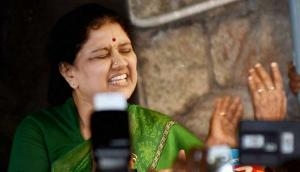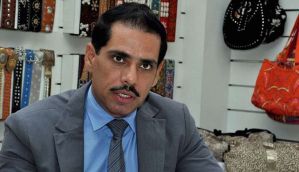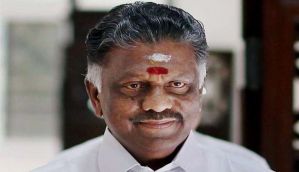Certify Udta Punjab, don't censor it, High Court tells Censor Board. Order out on 13 June
The Mumbai High Court, which heard a petition in the Udta Punjab-Censor Board war on 10 June, will pass a ruling in the matter on 13 June. Following the row over the censor revising committee suggesting 89 cuts in Udta Punjab, the producers, Phantom Productions and Balaji Motion Pictures, filed a petition to clear the film without cuts.
The makers believed that releasing the film with cuts would dilute the impact of the film. The high court judge has asked the censor board to merely certify the film as the Cinematograph Act does not grant them the power to censor it.
"Do you see the word censor anywhere in the act? If you want to see something something, use the remote. The word censor is the media's creation. Your power is to certify films. Trust viewers discretion. Leave it to the people. Multiplex audience is mature enough to decide for themselves. Audience is very open minded now. Films don't get ruined due to language," the judge said.
Indian woman abducted in Kabul
An Indian woman has been abducted in the capital city of Afghanistan, Kabul.
According to media reports, the victim was identified as Judith D'Souza, an employee at an international NGO, the Agha Khan network. Media reports indicate that the 40-year-old D'Souza was kidnapped on the night of 9 June from Taimani area of Kabul.
The matter is being looked into by authorities as the Indian embassy is said to be in touch with senior Afghan officials and the government is also in touch with D'Souza's family in Kolkata. Sources added said that all efforts are being made by Afghan authorities to release the body at the earliest.
The Modi Doctrine: PM Modi's vision of Indo-US ties gets a new name
Describing the recently-concluded US visit of Prime Minister Narendra Modi as "historic", the Obama administration has christened his vision of Indo-US ties - that has overcome the "hesitations of history" and working for the betterment of the global good - as "Modi Doctrine".
"The most important outcome in my mind of the visit this week and of the years of effort that preceded it is the clear and compelling vision that was laid out by Prime Minister Modi before joint session of the US Congress," assistant secretary of state for South and Central Asia Nisha Desai Biswal said.
"This vision which I have come to call The Modi Doctrine laid out a foreign policy that overcomes the hesitations of history and embraces the convergence between our two countries and our shared interests," Biswal told a Washington audience.
Biswal, the Obama Administration's point person for South and Central Asia, said this at a discussion on 'Security and Strategic Outcomes from the Modi Visit' organised on Thursday at Washington jointly by the Heritage Foundation -'an American think- tank ' and India Foundation, a New Delhi based think-tank.
Radical changes in film certification to be announced soon: Arun Jaitley
Amid a raging row over Udta Punjab, Information and Broadcasting Minister Arun Jaitley on Thursday said movie certification norms have to be liberal and "some very radical changes" will be announced over the next few days.
In his first comments on the row sparked by cuts sought by the Central Board of Film Certification on Udta Punjab, a film that depicts the problem of drug addiction in the state, he said, "I don't know this case because I have not seen the film in question."
Stating that he was "not satisfied" with the existing system of film certification, Jaitley said there are some changes that are about be made. "There is a well documented report by Shyam Benegal, the first part which has come to me which is under consideration. Over the next few days, we are going to announce some very radical changes in that," he said.
The Committee, he said, has suggested some changes. "You will probably have a system where you will have to have a certificate. The correct word is certification and not censorship. Certification norms will have to be liberal," he said speaking at the Indian of the Year Award by CNN TV 18 Group.
Nuclear fallout: Westinghouse go-ahead opposed by villagers to be displaced by reactors
Residents of Ranasthalam in Srikakulam district, in Andhra Pradesh, where nuclear six reactors with a total capacity of 6,000 MW are to be built, are up in arms over the government's land acquisition for the project.
Announced on Tuesday while Prime Minister Narendra Modi's was in Washington, the project has made villagers who are likely to be displaced demand higher compensation in exchange for their homes, while those in neighbouring areas are demanding a payout in view of potential nuclear hazards, says the Hindustan Times.
Hunting row: RTI replies show environment ministry ignores its own advisory
Right to Information responses by the environment ministry reveal that animals are allowed to be hunted without any scientific study, violating the ministry's own advisory of December 2014.
The RTI responses are backed by sources within the ministry who said that the ministry did not take the advice of its wildlife wing against the hunting of animals, and cleared hunting proposals from three states for a year, says the Hindustan Times.
Documents from Bihar, Himachal Pradesh and Uttarakhand showed that the states' culling proposals were made without scientific study, and yet were approved.
'Radical changes' in movie certification will soon be announced: Jaitley
Information and broadcasting minister Arun Jaitley said on Thursday that movie certification norms have to be liberal and "some very radical changes" will be announced soon.
"There is a well-documented report by Shyam Benegal, the first part which has come to me which is under consideration. Over the next few days we are going to announce some very radical changes in that," he said, according to the Hindustan Times. "Certification norms will have to be liberal."
Upper caste Rajputs crush Dalit man beneath a jeep over land dispute
A land dispute in Jasoori village, Nagaur district, Rajasthan, led to the death of a Dalit man who was allegedly run down by a jeep driven by upper caste Rajputs.
According to the police, three Rajput men asked Prabhu Bawaria to meet them near a dhaba on Thursday for a discussion over the disputed strip of land, but allegedly crushed him under their jeep.
The incident brought back memories of the Dangawas massacre in Rajasthan last year, when four Dalits were killed over a land dispute, says the Hindustan Times.
Hindu and Muslim prisoners in Muzaffarnagar fast together in Ramzan harmony
About 100 Hindus in Muzaffarnagar jail in Uttar Pradesh have been waking up before dawn since 7 June to observe the rituals involved in the dawn-to-dusk Ramzan fast along with about 1,000 Muslim fellow prisoners.
Two years ago, Muzaffarnagar was the scene of Hindu-Muslim violence that took 60 lives.
"This is the first time in my career that I have seen such a display of unity inside the jail premises. I think it's a wonderful thing in these times," said Rakesh Singh, jail administrator.
Arrangements have been made so the prisoners can perform their prayers and consume their pre-dawn sehri and post-fast iftars, says NDTV.
300 arrested by Mumbai police since new dance bar act was passed
Equipped with hidden cameras, the social service branch of the Mumbai police has been booking dance bar owners who operate without licences since 13 April, when the new legislation regarding dance bars, Maharashtra Prohibition of Obscene Dance in Bars and Hotels and Protection of Dignity of Women Act, 2016, came into effect.
So far, the SSB has carried out 13 raids, arrested 300 people or more, including customers, managers and cashiers, and rescued 95 bar dancers. The new bill prescribes a maximum punishment of five years and a fine of Rs 25 lakh or both for illegal dance bar owners and managers, says The Indian Express.
Ancient DNA tells of two origins for dogs
Genetic analyses of a 4,800-year-old Irish dog and 59 other ancient dogs suggest that canines and humans became pals in both Europe and East Asia long before the advent of farming, says a report in sciencenews.org.
Later, dogs from East Asia accompanied their human companions to Europe, where their genetic legacy trumped that of dogs already living there.
Therefore, dogs were domesticated at least twice. That muddled genetic legacy may help explain why previous studies have indicated that dogs were domesticated from wolves only once, although evidence hasn't been clear about whether this took place in East Asia, Central Asia or Europe.
The idea that dogs came from East Asia or Central Asia is mostly based on analysis of DNA from modern dogs, while claims for European origins have been staked on studies of prehistoric pups' genetics.
A 4,800-year-old dog found in a tomb in Newgrange, Ireland, is the first ancient dog to have its entire genetic instruction book, or genome, deciphered. Researchers don't know much about what the midsize dog looked like; it doesn't bear any genetic markers of particular modern dog breeds, Frantz says. "He wasn't black. He wasn't spotted. He wasn't white." Instead, the Newgrange dog was probably a mongrel with fur similar to a wolf's.
Westerners lack education on nuclear disaster risks
Western societies would not respond well to a Fukushima-style nuclear disaster due to a lack of public information, a leading disaster expert has warned. Christopher Abbott told the Guardian he firmly believed that the public ought to be better educated over the hazards and risks they may face. Illustrating his point, he referred to the Fukushima disaster of 2011 in which 160,000 people were evacuated from the vicinity of the plant as experts attempted to tackle the emergency. The evacuation worked, said Abbott, because "the Japanese educate the public". "I just don't see that it would have worked as successfully in western society," he added. "[It's] a very personal opinion but one that is backed up by Japanese colleagues." Abbott, chairman of the Emergency Planning Society CBRN professional working group, made the remarks while giving evidence to a science and technology select committee hearing at the House of Commons on chemical, biological, radiological or nuclear incidents. "We need to better educate the public, because a well-educated public will respond better," he said.







![BJP's Kapil Mishra recreates Shankar Mahadevan’s ‘Breathless’ song to highlight Delhi pollution [WATCH] BJP's Kapil Mishra recreates Shankar Mahadevan’s ‘Breathless’ song to highlight Delhi pollution [WATCH]](https://images.catchnews.com/upload/2022/11/03/kapil-mishra_240884_300x172.png)

![Anupam Kher shares pictures of his toned body on 67th birthday [MUST SEE] Anupam Kher shares pictures of his toned body on 67th birthday [MUST SEE]](https://images.catchnews.com/upload/2022/03/07/Anupam_kher_231145_300x172.jpg)






